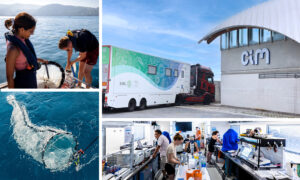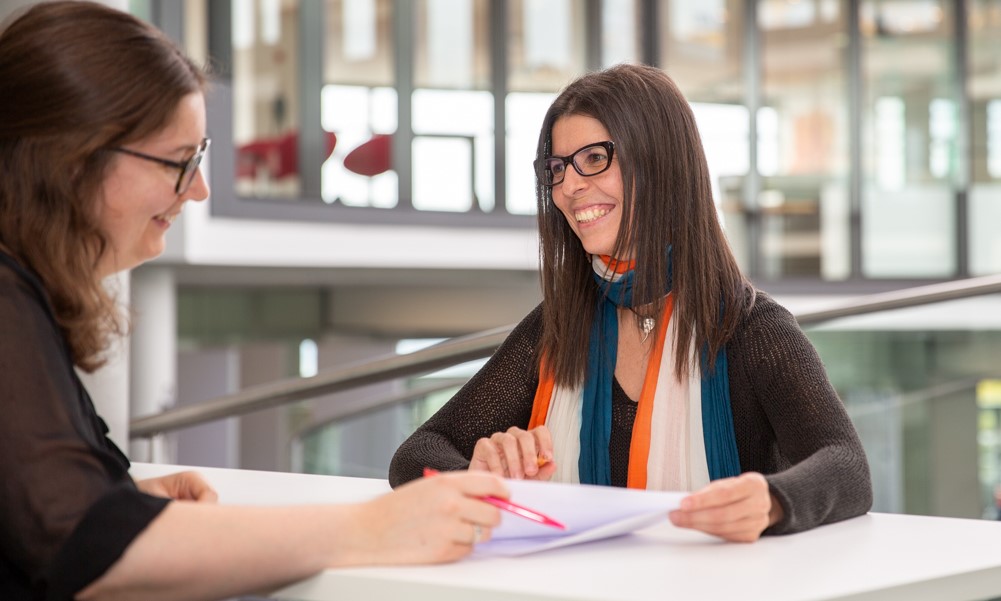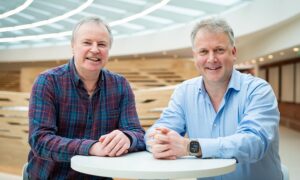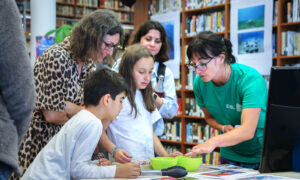
EMBL Fellows’ Career Service celebrates first birthday
Early-career scientists benefit from growing professional development programme

Tobias Wenzel is a biophysicist who knew early on in his EMBL postdoc where he wanted to go and what he wanted to do next. His eyes were on a tenure-track position at a university in Chile where he could expand the research he began at EMBL, leading a group of his own. While he had clear goals, he still needed guidance on the best way to achieve them.
And though Nadezda Volkova, a mathematician, completed her PhD in cancer genomics at EMBL’s European Bioinformatics Institute (EMBL-EBI), she had decided to move outside academia. In many ways, this job market was uncharted territory. Finding the way to best present herself and identifying appropriate jobs to apply for would be critical to her success.
Tobias and Nadezda ended up finding exactly the help they needed in the same place: the EMBL Fellows’ Career Service – now celebrating its first year of supporting both PhD students and postdocs. Led by career advisors Rachel Coulthard-Graf and Patricia Cabezas, this service supports fledgling scientists in identifying the best career fit for them and provides the tools to make that road an easier one.
Providing more support to EMBL fellows
As part of EMBL’s International Centre for Advanced Training, the programme offers services that range from personalised, individual career guidance sessions and job application materials checks to a variety of career workshops and events. Career guidance sessions offer a confidential space where fellows can explore their career trajectory, preferences, and concerns. Job application materials checks provide comprehensive feedback for refining cover letters and CVs for specific job applications. Together with the Postdoc Office, Rachel and Patricia also co-organise the EMBL Complementary Scientific Skills Programme, which offers trainings on non-technical skills required for a scientific career, such as scientific presentation skills and project management.
“We learned that the needs of PhD students are slightly different from those of postdocs,” Rachel says. “The postdocs tend to focus specifically on continuing their research and whether to do it within academia or industry. PhD students, on the other hand, seem open to a lot more possibilities for what they might do with their science education.”
The COVID effect
Starting a new programme like the EMBL Fellows’ Career Service is challenging at any time, but starting one and then recalibrating it for a pandemic presents new, unexpected considerations. For the EMBL Fellows’ Career Service, it obviously shifted the focus from in-person encounters to maximising the service’s online space. The challenge was to keep the service feeling personalised.
“In some ways COVID had a positive impact,” Patricia says. “Beforehand, we had the challenge of how to equally serve all six EMBL sites. Then COVID forced us online, where we could offer regular workshops to serve fellows from all six sites at once, suiting their schedules rather than waiting until the service offered one at their site.”
Since the beginning of the COVID crisis, the EMBL Fellows’ Career Service has held nine fully-booked online career workshops on three different topics. One workshop explored how to find the right postdoctoral position and laboratory setting, with advice on what to ask prospective group leaders and how to prepare cover letters. The other two workshops focused on how to prepare job application materials and face job interviews for the non-academic job market. The EMBL Complementary Scientific Skills Programme has also offered six other online workshops.
This year, EMBL’s annual Career Day turned into an online webinar series. Despite the change in format, the event attracted at least 300 participants to the webinars, including PhD students and postdocs from outside EMBL.
The online format does bring certain challenges, such as the difficulty of interpreting participants’ body language and non-verbal cues during career guidance sessions. “And while we’ve continued individual counselling online, some of the tools we developed to aid discussion on particular topics in in-person meetings don’t work as well in a video call,” says Rachel. “It’s also harder to provide comfort online when someone is stressed,” Patricia adds.
Looking back, however, Patricia and Rachel view their first year as one that accelerated their approach for the Career Service.
“We had plans to expand our reach in the coming years through virtual outreach,” Patricia says. “COVID has forced us to do that now, and our plan is to get even better.”
The proof is in the testimonials
This year has been an important one, as a result of COVID and an unusual job market, so use of the service and survey results have provided important insights. Approximately 20% of fellows have attended individual career guidance sessions, with more than 30% returning for follow-up appointments. A survey of participants showed that 100% would recommend the service to a colleague.
“The consultation I had was super helpful because it taught me what language and forms to use to describe my experiences and achievements, and what key phrases a recruiter would look for,” Nadezda says. “We initially thought that a position I brought as an example was too high for my experience level, but after two rounds of tailoring my CV I got the courage to apply, and then successfully interviewed and received an offer – a Senior Cancer Analyst position at Genomics England – the position I’m in now.”
Tobias, despite heading in a different career direction, shares similar satisfaction. “I was very clear about where I wanted to go and what I wanted to do,” he says of his assistant professor position, in which he heads up his own lab at Pontificia Universidad Católica de Chile. “A grant-writing workshop from the EMBL Complementary Scientific Skills courses, and several others, plus one-on-one guidance were invaluable, and helped me get familiar with non-technical skills that are all required for the application, as well as to fill out the role I’m now stepping into.”
Patricia and Rachel say these reactions are fairly typical. As they look to the future, they’re also looking back at participant feedback. “We’re further ahead in some ways than we expected,” Patricia says. “At this point, we assess what is working, what participants are still seeking, and where we can help provide further information and support.”


